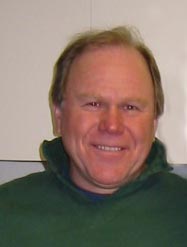It seems like I’ve known Arnie Rowland (blog | twitter) since the dawn of time. But it’s really more like the last several years, or at least since Arnie achieved Microsoft MVP status, that I really got to know him. Arnie has also been trying to get me to speak to the user group he leads in Portland, but coordinating it has been fiendishly difficult. I hope to get out to Portland in 2011 (no promises, Arnie!!!).
One of the activities that Arnie is leading that has deeply impressed me is Project Phoenix. Described here:
…we are inviting unemployed or underemployed developers to propose a software project for a non-profit agency, school, or church. The idea is that we will provide a package of the latest software, tools, and training resources to help you improve your skills, get up to date with current technologies, gain practical experience, potentially earn a recommendation for your efforts, and in general, enjoy the feeling of accomplishing something useful for others…
I’m a big proponent of professional ethics and paying it forward in ways like this. So I wanted to discuss this further with Arnie.
Here’s a bit of our discussion…
Kevin>> Tell me about Project Phoenix. What does it hope to accomplish?
Arnie>> I appreciate the opportunity to introduce Project Phoenix to your readers. We are awarding a package that includes an MSDN Ultimate Subscription, software tools, training, and books to unemployed, or significantly underemployed, developers that propose and undertake a software project for a non-profit, school, or church. We are making one award each week of the rest of the year –more than 30 in total. The idea is to provide the recipient access to the tools needed to improve his/her skills, an opportunity to gain practical experience, the potential to earn a recommendation and/or referral –and to positively contribute to society as a form of ‘give-back’. No free lunch, just sweat equity –the kind that makes us all feel good for the effort. Additionally, one of our goals is to increase consciousness amongst IT professionals about the needs of the non-profit sector. Many agencies, schools, and churches need our help –yet their budgets often don’t allow them to fully engage with us. When they are lucky, they get half-baked solutions to try and solve the complex problems of our society. That’s just not right.
Kevin>> In what way can we help?
Arnie>> Great question Kevin. I ask your readers to help spread the word about Project Phoenix. Tell any eligible developers –heck, tell all developers you know since someone you tell may have an unemployed friend or relative. Bringing Project Phoenix to the attention of non-profits, schools, and churches will help to increase the potential that a profound solution will bubble up and out. And for those readers that are not eligible to participate in Project Phoenix because they are employed, we challenge you to ask your church, your kids’ schools, your local non-profit agencies how you can use your skills to help them with their mission. Participate in, or organize, a local ‘Give Camp’. Consider how you can give back to society some token of your appreciation for being so fortunate.
Kevin>> There are a multitude of ways to volunteer. What attracted you to Project Phoenix?
Kevin>> I had been presented with these very expensive software gifts to just hand out as I saw fit. I observed that some similar gifts were being handed out to folks that could guess what number is between 1 and 3, or some similarly lame exercise, some were handed out as ‘door prizes’ –sometimes to winners that didn’t really have any use for, or place significant value on, the gift. Some time ago, after giving out such a door prize, I was contacted by the recipient who was exploring how to gain some value, maybe a trade, or even a sell. I realized that often we in the industry were bestowing very valuable gifts to folks that just didn’t place much value on the gift. I wanted to do something different. I decided that seeking out those who clearly understood the value of the gift, and were willing to offer some of their time and effort in exchange had some potential. Tying the pieces together, I decided to create a ‘package’ of value for the recipient so that he/she was motivated to take on a real life project for a deserving non-profit, school, or church, thereby creating additional value from the participants’ efforts to learn to use new tools. Unemployed developers are quite unlikely to be able to afford the package of software, tools, books and training –yet they would most certainly gain significant value from the ‘gift’ if they used it to increase their employment opportunities.
Kevin>> I’ve written a lot about the need for IT professionals to demonstrate good ethics on a daily basis in their profession. Do you think there’s a correlation between good ethics and volunteerism?
Arnie>> Ethics is about doing the right thing. We in this industry have skills that are needed by societal agents that work diligently to better life for less fortunate members of our society. The right thing is to offer some of our time, some of our skills, to help. We need more IT professionals willing to give up a TV program, willing to give up a football or basketball game, or willing to forgo a few hours of video gaming, and go out and do the right thing.
Kevin>> Project Phoenix is great for IT professionals because it plays off of their strengths in technology. But one of the downsides of IT is that the technology often puts distance between people, for example using an email when a phone call might better serve the situation. Does Project Phoenix do anything to connect us with real, live human beings and make a difference in their lives?
Arnie>> I only wish it did. We recognize that many of the projects we award will be completed without any direct personal contact between the developer and the agency. Phone calls, emails, perhaps online meetings will be the norm. That is an unfortunate fact of life in our profession. We hope and encourage that folks receiving Project Phoenix awards will be inclined to share their experiences with others –perhaps at User Groups. However, we are helping folks that are directly interacting with their clients. If the projects we award reduce the administrative burden for those working in non-profit agencies, schools and churches, and allow them to have more direct contact with their clients –we have succeeded in increasing social benefit.
Kevin>> What would the results of doing work with Project Phoenix look like?
Arnie>> For the individual who proposed a project for a non-profit, school, or church, and was awarded, there will be the satisfaction of having completed a ‘real world’ project while learning new tools and technologies. There will be the satisfaction of knowing that their work is benefiting some organization that would not have been able to purchase the solution. There will be the potential for a recommendation from the non-profit organization. There will be something significant to offer during job interviews. And another result is that some of the projects we award will be available in Codeplex for others to build upon; the efforts of our awards may seed many additional projects.
Arnie>> We recognize that we are seeding over 30 projects, and yet there is no insurance that these projects will actually complete and be deployed. So we have created a ‘completion bonus’. In March 2011, we will be evaluating the completed and deployed projects. One of the developers and projects that we previously awarded will be featured on the TechEd 2011 website and provided a full TechEd 2011 Conference pass courtesy of the Microsoft TechEd 2011 organizers. Telerik, a vendor supplying software development tools, will cover the airfare and hotel expenses to get the winner to TechEd, as well as feature the developer on their website. We are still working out the criteria for this excellent project completion bonus.
Kevin>> What are the next steps?
Arnie>> Continue spreading the word about Project Phoenix. Participate in, or organize, a local Give Camp. Ask your local non-profits, schools, churches how you can use your skills to help them. Society improves because we all care and take action. Show your care.


Speak Your Mind